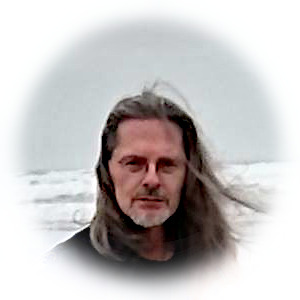It will happen to all of us, that at some point you get tapped on the shoulder and told, not just that the party’s over, but slightly worse: the party’s going on—but you have to leave. And it’s going on without you.
That’s the reflection that I think most upsets people about their demise.
All right, then, because it might make us feel better, let’s pretend the opposite. Instead, you’ll get tapped on the shoulder and told, Great news: this party’s going on forever—and you can’t leave. You’ve got to stay; the boss says so. And he also insists that you have a good time.
Christopher Hitchens
It really isn’t their fault, when you think about it. The True Believers, I mean.
Being but a small part of an infinite Reality; so small a part, that is, that we can barely be said to exist at all, doesn’t inspire confidence in oneself or one’s neighbors. That feeling we get when we contemplate our own extinction is the product of evolution.
We became human when our brains evolved sufficiently for us to be able to contemplate things that might happen. We stopped living in the moment and began living—at least partly—in the future.
This gave us a tremendous advantage over other species because we could now foresee and plan for difficulties and disasters before they happened. Cyclical events like winter (when food becomes scarce) could now be compensated for.
It also forced us to look ahead to our own death. This disaster (so-called) we have been trying to forestall ever since.
The Neanderthals tried just as hard before us. They performed rituals and buried their dead with symbolic grave goods.
They failed. Their species has died entire.
Most other animals don’t get depressed worrying about what happens after they die. I’m pretty sure it never occurs to them that they will.
We have this ego problem: we can’t accept the thought of a Reality without us in it. Despite the evidence to the contrary, we continue in the irrational belief that, somehow, we will escape this and continue to live on
We’re desperate to avoid losing our self-awareness, though it vanishes every time we sleep
Given this common experience of conscious going away nightly, why does anyone imagine that it can somehow survive the end of us?
Funny thing about the self; it isn’t even real. There’s no function of the brain, no part of it where the “me” lives. Buddhists learned of this before the Common Era, entirely through introspection
Cognitive Neuroscience caught up only recently. What we think of as the Ego is a cascading succession of thoughts and emotions flipping through our awareness like a riffling deck of cards. We’re trying to hold on to something that’s exactly as real as the ‘motion’ in a motion picture.
It takes an effort not much different than that required to reach emotional maturity, to accept that there are other things besides us. That, in the grand scheme of things, not only won’t our individual deaths be noticed, but neither will the death of our species, the planet, our sun, or likely even this universe.
For a rationalist, the consolation rests first in the knowledge that there will be no awareness after the event of our deaths and second, in the rather more philosophical notion that death, having been around since the beginning, isn’t a tragedy or a catastrophic disturbance in the natural order but, rather, a part of it.
Death is a part of the nature of everything that is made of smaller things.
Only single, simple things survive.
Death is for the complex, evolving.
It is thus the end of a simulacrum of something, the termination of a mere illusion.
We shouldn’t worry about our end.
After all, we were never really here.
—Gideon Jagged
Innsmouth, June 12019 h.e.
Omnes deos sunt daemoniorum.
amazon.com/author/gideonjagged
Copyright © 12019 H.E., Gideon Jagged & Alchemy of the Word
All Rights Reserved

